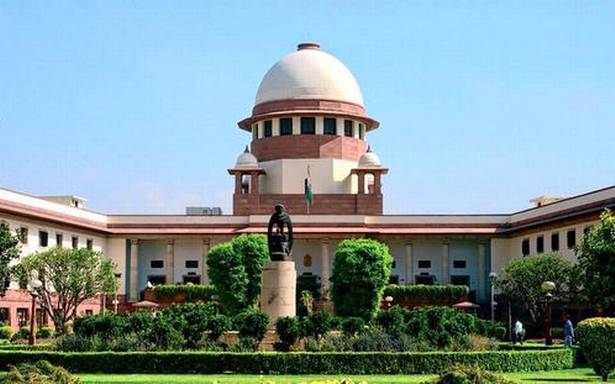Challenge to CAA, farm laws and abrogation of Article 370 head list.
A gradual opening up of physical hearings in the Supreme Court may see long-pending but crucial cases come to the fore. Some of them are before Constitutional Benches.
These include the challenge against the Citizenship Amendment Act (CAA) of 2019; the abrogation of Article 370 of the Constitution; questions of equal right to worship triggered by the Sabarimala temple entry for women case; pleas against the agricultural laws over which farmers have been protesting nearly two years; and questions whether the colonial law of sedition deserves a place in a modern democracy.
In January 2020, the apex court had said that petitions concerning the CAA were “uppermost in everybody’s minds”, but refused to stay the new law without hearing the government first. The Bench, at that point, had indicated that the CAA challenge may eventually be referred to a Constitution Bench for a decision on merits.
In August this year, Communist Party of India (Marxist) leader and spokesperson of the People’s Alliance for Gupkar Declaration M.Y. Tarigami had asked the Supreme Court to “expeditiously” begin hearing petitions challenging the Centre’s abrogation of Article 370 and bifurcation of the State of Jammu and Kashmir into two Union Territories, saying the government was taking “irreversible actions” which may render the pending case “infructuous”. Several petitions, including one by Mr. Tarigami, have been waiting in the Supreme Court for nearly two years.
A nine-judge Bench of the Supreme Court had, in February last year, framed several questions of law for itself to answer — one of them was to lay down the ambit of religious freedom under Article 25 of the Constitution.
Several petitions challenging the Farmers Produce Trade and Commerce (Agriculture and Promotion) Act, 2020, Farmers (Empowerment and Protection) Agreement on Price Assurance and Farm Services Act and the Essential Commodities (Amendment) Act of 2020 are pending. The petitioners have described the laws as precursors of an anti-farmer, “exploitative regime”. A Bench led by then Chief Justice Bobde seemed to have focussed more on resolving the farmers’ protests, including even appointing an expert committee to intercede between protesting farmers and the government.
In July this year, Chief Justice of India N.V. Ramana had criticised the way sedition was used by the government to crush liberties. The CJI questioned why a colonial law used against Mahatma Gandhi and Bal Gangadhar Tilak continued to survive in the law book after 75 years of Independence.
A number of petitions are pending in the apex court highlighting the “chilling effect” sedition has on the fundamental right of free speech. The CJI’s remarks also opened the floor for debate and introspection on the court’s own judgment in 1962, in the Kedar Nath case, which upheld Section 124A of the Indian Penal Code.
Source: Read Full Article

